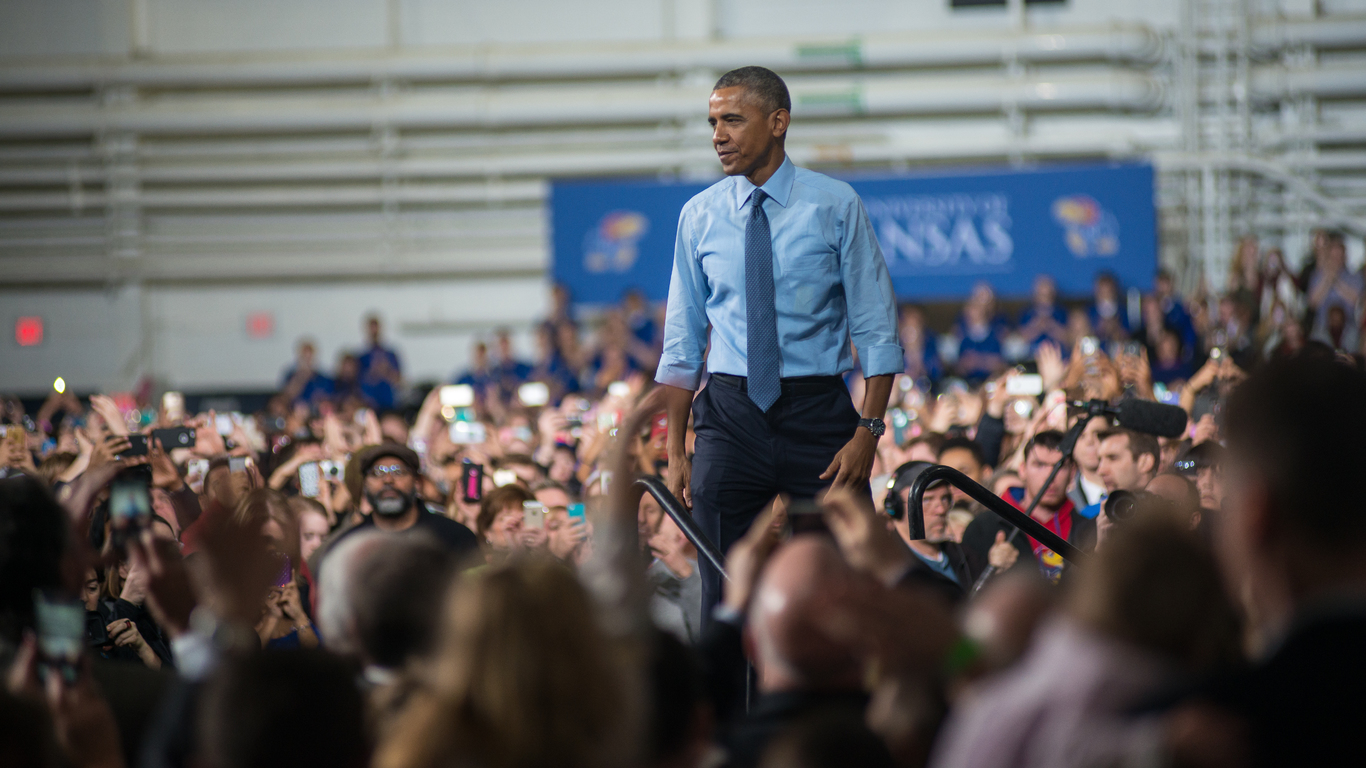What Obama can teach us about one of the most common and challenging interview questions
Like many communications problems, we can look to politics for a steer on how to prepare.
WHAT IS YOUR greatest weakness? It’s one of the most common, most daunting and potentially one the most dangerous interview questions that candidates face – and it’s often poorly answered.
An analysis of thousands of posts on Glassdoor, which allows people to post details of their interview experiences, found it’s the second most common question.
In my work preparing candidates for job interviews, I’ve found it’s one of the most common anxiety drivers.
People dread the question more than any other and they ultimately deliver answers that are poorly planned and unenthusiastically delivered.
Lessons from the campaign trail
Like many communications problems, we can look to politics for a steer on how to prepare.
A 2008 Democratic debate between Barack Obama, Hilary Clinton and John Edwards saw each candidate being asked to expand on their greatest weakness.
John Edwards, a US Senator at the time, defined his weakness as caring too much about voters’ problems. He felt their problems so acutely and so emotionally that it impacted his ability to help.
Hilary Clinton was weakened by the fact she showed her frustration at times when other people couldn’t work as fast as she could in their attempts to fix the nation’s problems.
Both went for the clichéd, my weaknesses are actually strengths, approach – transparent and obvious attempts to self-praise.
Barack Obama on the other hand, gave an honest answer. He admitted to being desperately unorganised.
His staff were told not to give him a speech before he absolutely needed it because it would be lost. He painted a picture of a messy desk – being organised, he said, is just not his strength.
He went on to explain that he has processes and procedures in place to make sure that it doesn’t impact his performance, and that’s why he was still qualified to run – and why he was able to oversee an impressive and organised presidential campaign.
It was a textbook example of the correct approach to the weakness conundrum. Genuine, self-reflective, self-aware, while at the same time providing evidence for why that weakness was ultimately inconsequential to his ability to run the country.
Now, not all interview candidates can talk about how their staff help negate their weaknesses, but they can learn from Obama’s approach.
Avoid the cliché
The first lesson is that they shouldn’t go for the obvious tactic of trying to turn a weakness into a perceived strength.
Don’t claim to be a perfectionist, don’t talk about an inability to strike the correct work life balance, don’t discuss an unignorable tendency for checking every document for mistakes four times before sending.
These are the kinds of answers I see every day when I prepare people for job interviews. It’s obvious what candidates are doing and employers don’t react well to attempts at manipulation.
Be genuine, but do no harm
Instead, they need to be genuine. Pick a real weakness and expand on it.
An interviewer is looking for self-awareness and self-analysis. An honest answer to a difficult question like this adds credibility to the rest of an interview.
At the same time, they must take a cue from the Hippocratic oath and remember to “First, do no harm”.
Avoiding revealing a weakness that is absolutely essential to the role on offer is just smart strategy. A board of management is less likely to hire a teacher that highlighted an extreme lack of patience with young children, for example.
Identifying a real weakness, but one that isn’t absolutely essential for the role, is the key.
Leave no doubt that the weakness isn’t a barrier to performance
The final step is to give an interview panel evidence that the weakness, while real, won’t provide an insurmountable barrier to future success in the role.
Obama did this by expanding on the procedures he had put in place with his staff members.
Any candidate can reach the same objective by explaining how they are working on improving the weakness long term, but have a plan in the short term to manage its impact.
Last year I worked with a candidate who was at a loss at how to approach the weakness question for an upcoming interview.
During the session I discovered that they had a real anxiety around public speaking, one on one communication was no problem, group communication was a real issue.
What they needed to do was be up front about the nerves they felt, to outline the steps they had taken to address the problem.
They had joined Toastmasters and started taking on presentations despite the nerves to get practice, and they need to give examples of successful presentations they had delivered that required hours of practice and work to combat the nerves.
It was clear that the weakness remained, but they had taken steps to improve long term, and minimise impact in the short term.
The weakness question is a common one. It’s also an important one because it allows an employer assess if the person is capable of self-analysis and improvement. If you have an upcoming interview you need to be ready for it.
Learn from Obama, be genuine, be open, be honest – but also be strategic.
Lorcan Nyhan is a senior consultant and the head of careers at The Communications Clinic.






